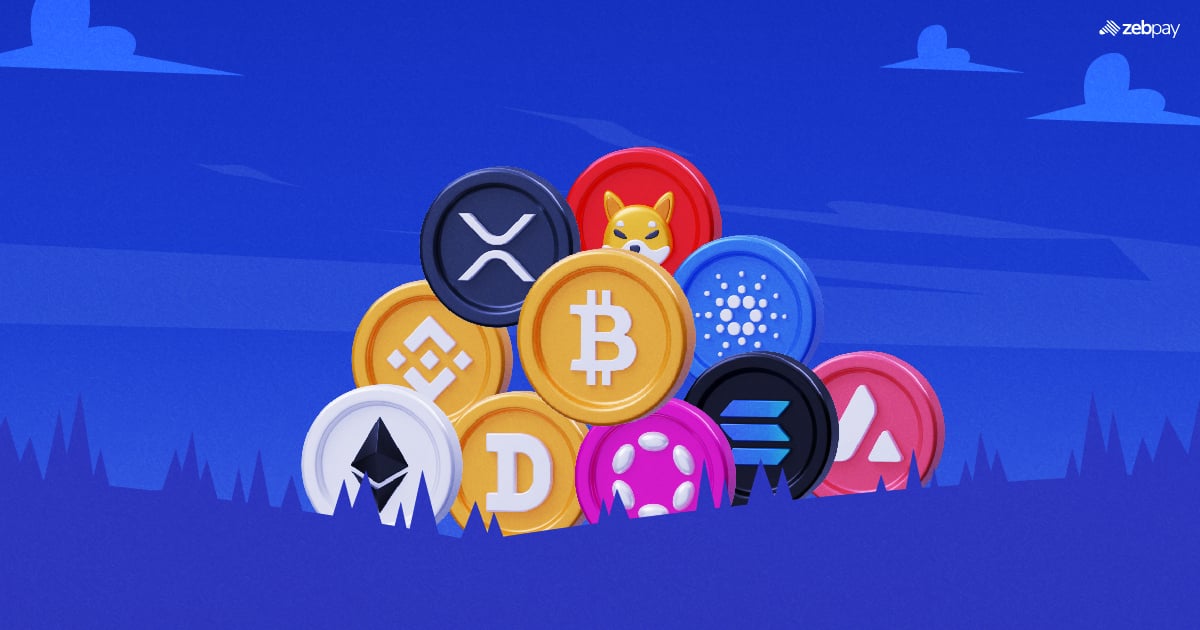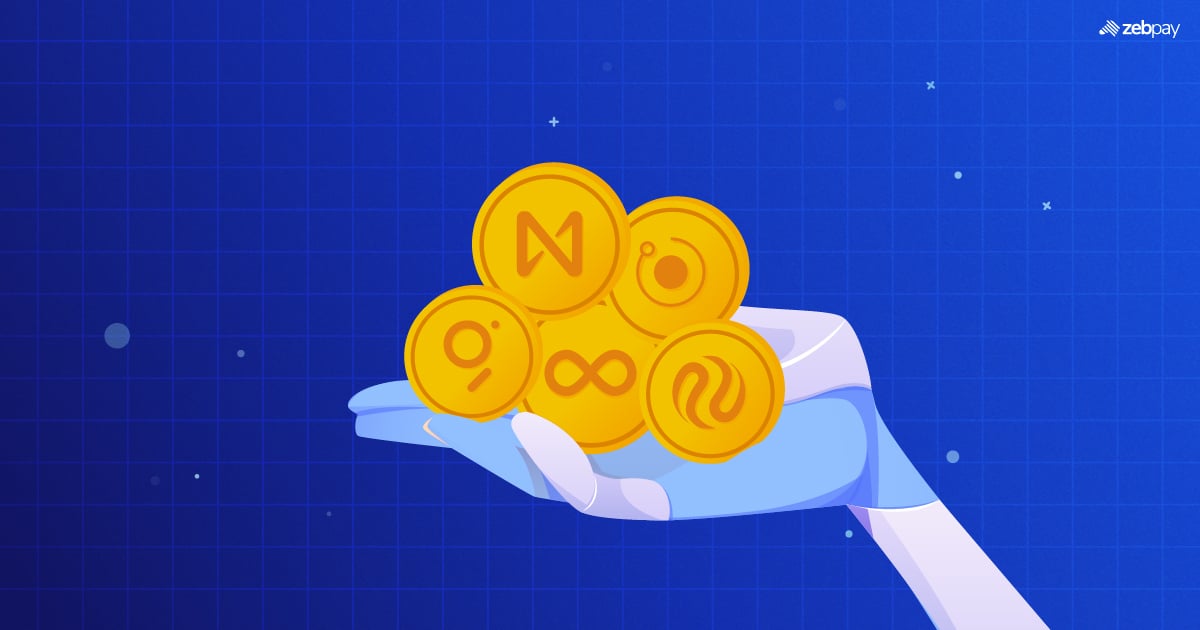Smart contracts are like any other contract in that they establish agreement terms, but unlike traditional contracts, Smart contract terms are automatically executed by a code. It enables developers to create innovative applications that benefit from the reliability and security of blockchain networks. It also offers complex peer-to-peer functionality in diverse industries such as insurance, supply chain, DeFi, and gaming.
The first iteration of a blockchain was like an accounting ledger, where it only held the state of the node. The next iteration used computer codes for nodes to run on their predefined logic, which led to Smart contracts. Smart contracts allow developers to build a wide range of decentralized applications in diverse industries such as DeFi, supply chain, and gaming. They are added to the blockchain and cannot be reversed or altered once added.
Smart contracts offer many advantages over traditional contracts, such as low costs, speed, and efficiency. The evolution of Smart Contracts is not limited to just technological innovations; they have also triggered a discussion about reevaluating traditional legal agreements. The future of Smart contracts promises a new world where boundaries keep expanding to transform how we interact, transact, and innovate in the modern digital era.
Advancements in Smart Contract Technology
The evolution of programming languages to write Smart contracts is one of the most crucial technological advancements. It started with Ethereum’s native language, Solidity, and now we have many advanced languages like Vyper that focus on simplicity and security. These new programming languages have made it easier for developers to create robust Smart contracts, leading to broader adoption. The advancements in Smart contract technology focus on solving two crucial issues: efficiency and scalability. Early blockchain protocols were plagued with network congestion and low transaction speeds. The rise of layer-2 scaling solutions has addressed these issues, allowing for low costs and faster Smart contract execution.
Another advancement in Smart contract technology is the integration of oracles and real-world data feeds. Oracles listen to requests from Smart contracts to fetch the required data from external sources and send it back to the Smart contract. The Smart contracts will then use this information to update or trigger their logic. Oracles can also process, aggregate, and verify steps before sending data to Smart Contracts, depending on the complexity of the data.
Integration with Artificial Intelligence and Machine Learning
The integration between Smart contracts, machine learning (ML), and artificial intelligence (AI) is now a reality due to technological advancements. AI and Smart contracts complement one another in many ways and their combination can disrupt many traditional industries. For example, AI and ML-powered Smart contracts can be used in real estate to improve and streamline the process of buying and selling. They can automatically execute the transfer of ownership once all the contract conditions are fulfilled, such as paying the complete amount. It makes the transaction cheaper and faster, eliminating the need for intermediaries.
Another advantage of AI-powered Smart contracts is that they are less prone to fraud and are more secure than their predecessors. AI and ML can evaluate the data, identify potential red flags, and stop executing the contract. This process eliminates the possibility of fraud and ensures all contract terms are met. AI and ML-powered Smart contracts will revolutionize the crypto ecosystem as they allow for more cost-effective, efficient, and secure transactions. The demand for AI Smart contracts will only rise with the increasing adoption of blockchain networks.
Expansion of Use Cases

Many diverse industries are beginning to realize the potential of Smart contract technology. Its use cases are mainly financial contracts in the DeFi space, but new applications have led to its integration with other industries such as supply chain, healthcare, decentralized governance, and intellectual property protection. We have elaborated on some crucial real-world use cases below.
Supply chain
The potential of Smart contracts goes beyond DeFi. In supply chain management, where accurate and timely information is vital, Smart contracts can play a crucial role. A global supply chain entity will have multiple stakeholders, such as manufacturers, suppliers, and shippers. Any disruption in the supply chain can result in significant losses in terms of profitability and efficiency. Smart contracts, with the help of oracles, can access real-time data to trigger various actions. They can optimize the supply chain process to keep costs low and improve efficiency.
Healthcare
Smart contracts can ensure privacy and security when sharing patient data among healthcare institutions or doctors. Oracles can analyze patient data to produce insights for treatments, population health management, and medical research. Smart contracts can ensure data sharing in healthcare is transparent and consent-based.
Energy sectors
The energy sector heavily depends on trust, accuracy, cost-effectiveness, and security in its operations. Smart contract technology can offer all these benefits. They can help improve time-consuming processes such as managing orders, compliance, price delivery, and settlement.
Decentralized governance and voting
The traditional voting process can be influenced by external factors. Smart contracts offer a more transparent method for voting due to their self-executing and tamper-proof nature. They can also prove beneficial for governance structure, and the emergence of decentralized autonomous organizations (DAO) is a new governance use case.
Intellectual Property Protection and Licensing
Digital assets such as images, videos, software, and books are vulnerable to piracy and unequal revenue distribution. These problems can be addressed through tokenization. Digital assets can be converted into non-fungible tokens (NFTs) that cannot be pirated or copied.
Interoperability and Cross-Chain Compatibility
There are many isolated protocols in the blockchain ecosystem today. This lack of interoperability can lead to issues for the broader adoption of crypto platforms and services as it prevents the seamless exchange of data and crypto assets across different networks. Developers are building new solutions to improve cross-chain connectivity. These solutions can pave the way for more interconnected and user-friendly crypto applications.
Cross-chain Smart contracts are decentralized applications that have multiple Smart contracts on different blockchain protocols that can communicate with each other. Smart contracts on various protocols perform different tasks but work together to support a single use case. This feature enables developers to leverage different crypto networks for their unique benefits.
Legal Recognition and Compliance
One of the significant challenges facing Smart contract technology is compliance and jurisdiction issues. It is hard to determine which jurisdiction is applicable since it is a global technology. They also face difficulties ensuring compliance with KYC rules since this technology is mainly used in decentralized finance.
Smart contract audits involve examining the code that underpins the Smart contract’s terms. Developers can quickly identify vulnerabilities before deploying their applications. Hence, Smart contract audits have become vital.
Decentralized Autonomous Organizations (DAOs)
DAOs are formed by a group of people who decide to follow specific rules to achieve common objectives. The main difference between DAOs and other governance structures is that their rules are in computer codes. They use Smart contracts to dictate how they operate and do not require human intermediaries. Smart contracts can be audited publicly, which helps potential members gain a complete understanding of a DAO.
One vital advantage of DAOs is that votes reflect on the blockchain, which is public. Hence, DAO members must act responsibly and make well-thought-out decisions. They are driven by common goals, and they empower their members by bringing like-minded people together.
Challenges and Considerations
Smart contract technology can disrupt many traditional industries, but it has to overcome some challenges for broader adoption.
Security risks
Smart contracts come with security risks as they can develop errors and have a significant negative impact. They are usually applied in DeFi, so a single vulnerability can result in considerable losses. However, Smart contract technology keeps evolving to keep these security risks to a minimum.
Legal and regulatory issues
There are no concrete regulations that govern Smart contracts. There is a risk of loss if one party violates contract terms. Lack of legal and regulatory support is one of the significant challenges that can limit Smart contract adoption.
External Data Reliability
Smart contracts rely on oracles that supply external data to perform their functions. However, Oracle’s dependency can give rise to operational risks due to corrupted data sources. Hackers are known to target Oracles to exploit DeFi protocols.
Read more: What are Smart Contract Wallets
Conclusion
We have seen the evolution of Smart contract technology with new programming languages that simplify the process of creating applications. Their integration with oracles has led to numerous use cases due to real-time data feeds. AI-powered Smart contracts can eliminate fraud risks and ensure contract terms are met. This article has also explored Smart contract use cases beyond DeFi, such as supply chain, healthcare, energy sectors, and decentralized governance. They can also improve cross-chain compatibility for seamless exchange of crypto data and assets. They have to overcome challenges such as security risks and regulatory uncertainties for broader adoption. They have a huge potential to transform traditional industries, and their adoption will only increase in the coming years. Companies that fail to adopt Smart contract technology will likely fall behind their competitors.
To stay up to date with the latest crypto news, visit ZebPay blogs. Click on the button below to trade on ZebPay.







